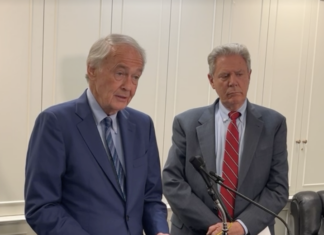By Sargis Harutyunyan
YEREVAN (RFE/RL) — Armenia on Friday commended the highest United Nations court for upholding the legality of Kosovo’s secession from Serbia but gave no indication that it is ready to recognize the mostly Albanian-populated region’s independence.
Armenian leaders said the non-binding ruling handed down by the International Court of Justice (ICJ) late on Thursday will foster a resolution of the Nagorno- Karabagh conflict sought by Yerevan. The Hague-based ruled that Kosovo’s 2008 unilateral declaration of independence from Serbia did not violate international law. The verdict has been welcomed by the United States, which called on other nations, including Serbia, to recognize Kosovo’s independence.
“This decision is truly unprecedented in the sense that for the first time ever the International Court addressed the correlation between two principles, peoples’ self-determination and territorial integrity [of states,] and took the decision stemming from the United Nations Charter,” Deputy Foreign Minister Shavarsh Kocharian told the Armenian state television.
According to Kocharian, the ICJ ruled that self-determination, which has long been championed by Armenia, should take precedence over territorial integrity in the resolution of territorial or ethnic disputes.
“This is an unprecedented decision that can positively impact international recognition of Karabagh,” Eduard Sharmazanov, the spokesman for the ruling Republican Party of Armenia (HHK) said. “Why unprecedented? Because for the first ever an international court ruled that when it comes to independence, the people’s right to self-determination is more important that territorial integrity of states.”







